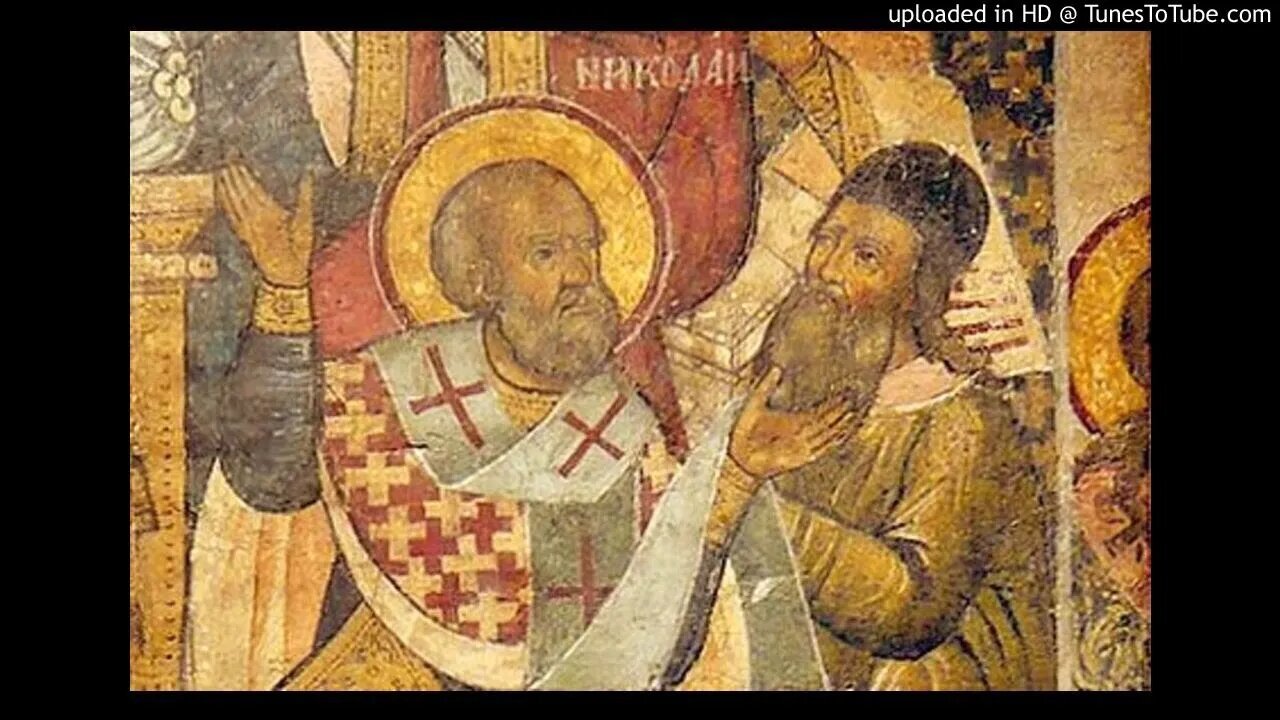Premium Only Content

Athanasius of Alexandria - Four Discourses Against The Arians
Extracts from the Thalia of Arius
The Importance of the Subject
That the Son is Eternal and Increate
Athanasius of Alexandri also called Athanasius the Great, Athanasius the Confessor or, primarily in the Coptic Orthodox Church, Athanasius the Apostolic, was the 20th bishop of Alexandria (as Athanasius I). His intermittent episcopacy spanned 45 years (c. 8 June 328 – 2 May 373), of which over 17 encompassed five exiles, when he was replaced on the order of four different Roman emperors. Athanasius was a Christian theologian, a Church Father, the chief defender of Trinitarianism against Arianism, and a noted Egyptian leader of the fourth century.
Conflict with Arius and Arianism as well as successive Roman emperors shaped Athanasius' career. In 325, at the age of 27, Athanasius began his leading role against the Arians as a deacon and assistant to Bishop Alexander of Alexandria during the First Council of Nicaea. Roman emperor Constantine the Great had convened the council in May–August 325 to address the Arian position that the Son of God, Jesus of Nazareth, is of a distinct substance from the Father.[4] Three years after that council, Athanasius succeeded his mentor as archbishop of Alexandria. In addition to the conflict with the Arians (including powerful and influential Arian churchmen led by Eusebius of Nicomedia), he struggled against the Emperors Constantine, Constantius II, Julian the Apostate and Valens. He was known as Athanasius Contra Mundum (Latin for Athanasius Against the World).
Nonetheless, within a few years after his death, Gregory of Nazianzus called him the "Pillar of the Church". His writings were well regarded by all following Church fathers in the West and the East, who noted their rich devotion to the Word-become-man, great pastoral concern and profound interest in monasticism. Athanasius is counted as one of the four great Eastern Doctors of the Church in the Catholic Church.[5] In the Eastern Orthodox Church, he is labeled as the "Father of Orthodoxy". Athanasius is the first person to identify the same 27 books of the New Testament that are in use today. He is venerated as a Christian saint, whose feast day is 2 May in Western Christianity, 15 May in the Coptic Orthodox Church, and 18 January in the other Eastern Orthodox Churches. He is venerated by the Oriental and Eastern Orthodox Churches, the Catholic Church, the Lutheran churches, and the Anglican Communion.
The Council of Nicaea (325), "passed twenty disciplinary canons for the better government of the Church. By one, C. 6, of these the Bishops of Rome, Alexandria, and Antioch, were declared to possess jurisdiction over the Churches in their respective provinces". Hence, the Alexandrian Bishop was declared with the authority of Patriarch. (Wikipedia)
-
 18:12:15
18:12:15
Chesterton Radio
1 year ago $3.19 earnedChristmas Radio Live - Holiday Fun All-Day Live Stream
31.7K3 -
 1:30:23
1:30:23
Twins Pod
13 hours agoHe Went From MARCHING With BLM To Shaking Hands With TRUMP! | Twins Pod - Episode 45 - Amir Odom
126K29 -
 1:02:30
1:02:30
Exploring With Nug
15 hours ago $3.38 earned2 Duck Hunters Missing After Kayak Capsizes!
54.6K2 -
 46:48
46:48
Mally_Mouse
8 hours agoLet's Hang!! -- Opening Christmas gifts from YOU!
65.2K1 -
 44:55
44:55
Athlete & Artist Show
20 days ago $2.04 earnedNHL 4 Nations Snubs, Was Hawk Tuah Coin A Scam?
63.7K -
 33:47
33:47
Stephen Gardner
14 hours ago🔥Pentagon Whistleblower UNLEASHES on Biden and Obama!
119K181 -
 2:20:30
2:20:30
The Dilley Show
15 hours ago $27.96 earnedRoger Stone in Studio plus Q&A Friday! w/Author Brenden Dilley 12/27/2024
97.9K21 -
 1:57:02
1:57:02
The Charlie Kirk Show
13 hours agoThe Great H-1B Battle + AMA | Lomez | 12.27.24
184K291 -
 11:39
11:39
Russell Brand
1 day agoWhat You're Not Being Told About The Syrian War
181K287 -
 DVR
DVR
Bannons War Room
1 year agoWarRoom Live
101M